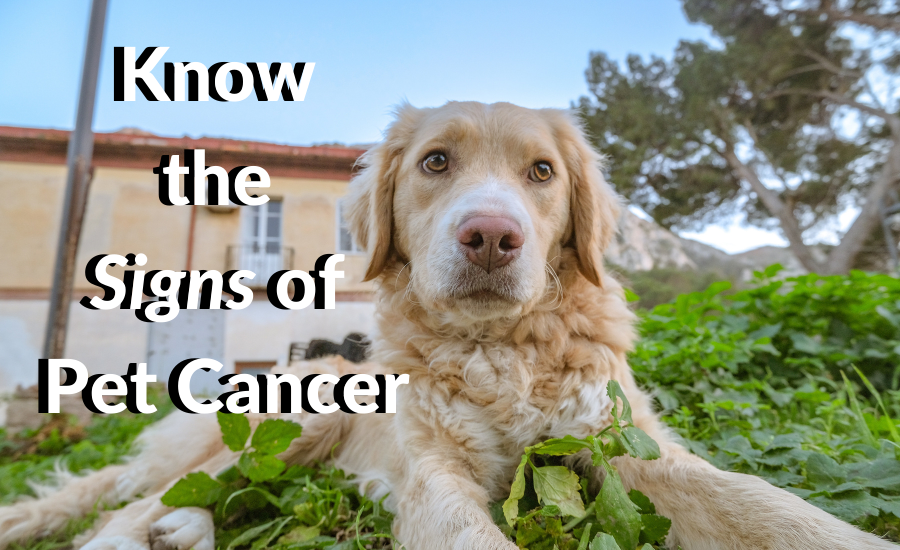It's November"¦ or what we like to call it "Know-vember." Throughout this month we dedicate our time to educating pet parents on what they need to know to potentially save their pets' lives. Because November is also National Pet Cancer Awareness Month, there's no better time to take a closer look at the disease that takes more pets' lives than any other.
Why Does Pet Cancer Matter?
Cancer kills. This deadly disease doesn't just affect people. It can be devastating for pets and their families. There are over 100 types of cancer that animals can get. In fact, the rate of cancer for dogs is surprisingly similar to the rate seen in people. Cats don't get cancer quite as often, but their numbers aren't far behind. What do those numbers look like?
- Cancer accounts for nearly half of pet deaths in pets over ten years of age.
- One in four dogs will develop cancer.
- Dogs develop more forms of cancer than other pets.
- Mammary gland cancer is the most common cancer dogs develop.
- 33% of tumors that develop in dogs are skin tumors.
- One in five cats will develop cancer.
- Leukemia is the most frequent cancer in cats.
- 50% for dogs and 85% for cats of breast tumors are malignant.
What Can You Do to Prevent Cancer from Taking Your Pet's Life?
The best way to protect your pet is to know the most common signs of cancer. Early diagnosis can save your pet's life, save you the stress and heartbreak of long-term treatment for your pet, and increase your pet's survival rate.
What Are the Signs of Pet Cancer?
Often cancer can be treated and your pet will overcome the disease. Catching cancer early can improve your pet's prognosis, so early detection is vital. To help you know when to make the call and schedule an appointment, we want you to know what to look for.
The most common cancer warning signs are:
- Trouble chewing
- Difficulty swallowing
- Reluctance to exercise
- Lumps and bumps that continue to grow
- Sores that do not heal
- Loss of weight
- Lack of appetite
- Unusual or strong odors
- Discharge or bleeding
Other common signs of pet cancer include:
- Trouble breathing
- Swollen or sore abdomen
- Reluctance to exercise
- Persistent diarrhea or vomiting
- Lameness
What Else Can Pet Parents Do to Reduce Their Pets' Risk of Cancer?
Some pets simply have a genetic predisposition for cancer. While there is no failproof way to prevent your pet from getting cancer, there are things you can do to potentially reduce the risk.
- Keep your pet at a safe and healthy weight.
- Don't skip vet check-ups. Senior pets should see us twice per year and healthy adults once per year.
- Spray or neuter your pet.
- Limit your pet's exposure to toxins and carcinogens.
Wishing You, Your Family, and Your Pets a Healthy Holiday!
Happy Know-vember. If you need to know anything concerning your pet's health, we're here for you. If you've noticed any of the signs listed above or you're past due for an exam, please make an appointment to see us soon.
From the Minnesota Veterinary Hospital family to yours. We hope you have a happy, healthy holiday. We continue to provide the necessary care pets need while keeping clients and our staff safe.
Image credit: Davide Baraldi | Pexels

